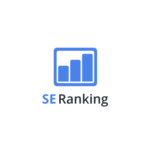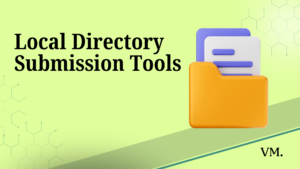These days, getting your website to stand out in a crowded online world can feel like a never-ending uphill battle. That’s where understanding and leveraging the right SEO tools features comes in. Whether you are a seasoned online business owner or just starting out, understanding seo tools features can be a complete game-changer.
These powerful advanced SEO tools features hold the keys to unlocking greater visibility, driving targeted traffic to your website, and boosting your search engine rankings like never before. It’s like having a secret weapon in your back pocket.
The Building Blocks: Understanding SEO Fundamentals
Before we even talk about fancy SEO tools features, let’s take a step back and make sure we are on the same page. SEO, or search engine optimization, is all about making your website more attractive to search engines like Google.
Think of it this way, when someone searches for something online using specific keywords, Google wants to deliver the absolute best, most relevant, and trustworthy results. It’s their bread and butter. Our goal as marketers is to be at the top of that results page, because that is where the majority of people will see you.
SEO is what will get us there. This is where search engine optimizaton comes into play. By making adjustments to various elements of your website, både on-page and off-page, we can tell Google that your website deserves a prime spot in the search results.
Why SEO Tools are Non-Negotiable in Today's Digital Landscape
You might be asking yourself, “Can’t I just optimize my website manually?” And the answer is yes, technically you can. But realistically, it would take a considerable amount of time, effort, and frankly, a level of data analysis most of us wouldn’t have time for.
This is where our trusty SEO tools features step up to the plate, becoming our very own digital marketing sidekicks. They help simplify and streamline the entire process. Tools act like those high-tech magnifying glasses for the online world, they give us valuable insights into how our websites are actually performing and how people are finding us.
That kind of information can help shape our content strategy.
Diving In: Unpacking Key SEO Tools Features
Keyword Research Tools
These tools are like those gold panning sifters you see in old western movies. They filter through mountains of data to unearth the hidden gems – our precious keywords. For the uninitiated, keywords are those specific words and phrases people use when searching online, basically the language of search engines.
For example, imagine for a moment that you own a cozy online bookstore that specializes in mystery novels. You may already be targeting the obvious keyword, like, “mystery books.” But, our handy keyword research tools might reveal a goldmine of related terms with less competition like, “best psychological thriller books of 2024” or even, “mystery novels with unexpected plot twists.
The right tool will tell you crucial things about the monthly search volume, or popularity of the keywords, the competition, the intent behind the searches, and how much it will cost if you decided to run paid advertising on those terms.
They can even help you unearth what’s called “long tail keywords” which are these longer, highly-specific phrases people search when they know exactly what they’re after, like, “mystery book with a female detective and a gothic setting,” These may have a smaller search volume than broader keywords but the competition tends to be less fierce.
Ranking well on highly specific keywords means you’re capturing those valuable customers who already know exactly what they want making the conversion rates higher. By optimizing our site and content using those strategic gems, we boost our chances of attracting those highly targeted readers, it is all about knowing the language they use in search engines and tailoring your content to match.
Think of keywords as bridges, connecting our websites with the exact audience we’re searching for. Let’s delve into some tools and features I recommend when it comes to keyword research:
Must-Have Features:
- Keyword suggestions: Generates relevant keywords based on a seed keyword, topic, or website URL.
- Search volume and trends: Shows the estimated number of times a particular keyword is searched each month. A high search volume suggests it's a widely used keyword. Ideally you want high volume and low competition.
- Keyword difficulty: Analyzes how hard it is to rank for certain keywords.
- SERP Analysis: Tells you what's working in your particular niche and location. Tools will take a look at what's currently ranking, giving you insight into the competition and even what search intent Google values for the keywords you are targeting.
- Competitor Analysis: Tools analyze what keywords are performing well for your competitors and identify potentially untapped keyword opportunities for your website.
Some reputable keyword research tools are:


This is a keyword research tool I haven't personally used. RankIQ is a platform that takes a very interesting approach by packaging keyword queries into over 300 pre-set topical niches.
Website Audit or SEO Audit Tools
This is the digital equivalent of hiring those tough-love, brutally-honest home inspectors to crawl around every nook and cranny of your house, uncovering potential deal-breakers you would never see with the naked eye.
Tools provide a complete rundown of your site’s overall SEO health, pinpointing technical issues hindering its search performance. Because think of it this way, even if you have the most fantastic, valuable content online, technical glitches could hold you back.
Must-Have Features:
- Crawlability and indexability: Shows if search engines can effectively crawl (read) your website, analyze if pages are properly indexed and discover broken links, errors, and anything stopping search bots from easily navigating and understanding your website.
- On-page SEO analysis: Evaluate individual webpages to make sure they're optimized for our target keywords. Looks for missing, duplicate, or overly long title tags and meta-descriptions. Reviews images, making sure alt-tags (descriptive text for images), are in place
- Off-page SEO Analysis: Assesses the quantity and more importantly quality, of backlinks to a site to determine its overall authority. Tools that identify spammy links from low-quality sites are super valuable for this aspect because you can work towards removing those and cultivating relationships with trustworthy, relevant websites. Links continue to be one of the most important external or “off-page” signals that can help a website rise in search engine rankings.
- Technical SEO: Assesses things that affect your site speed, mobile friendliness, and overall site architecture, all of these things impact your Google rankings these days.
- Reports: Rank Ranger is cheaper than a lot of other all-in-one platforms, but their white-label reports look great and are easy to follow. Tools typically give an easy to understand report highlighting the issues with practical recommendations on how to improve. You can generally download those reports and give them straight to a developer or your in-house team. I personally really enjoy reporting tools for seo tools features, that break down highly technical SEO jargon into easy-to-understand explanations and give me a roadmap of what to work on next.
A few reputable site audit SEO tools are:


Again, their site audit tool provides highly specific, and often quite technical insights and the data they give you can uncover more significant structural issues.

Loved for their user-friendly interface, detailed analysis, and straightforward action items.
Rank Tracking Tools
Now that we know what people are looking for, it’s time to see where your website stacks up. Rank trackers give us valuable intel on how our webpages are performing in search engine results pages or SERPs.
It’s important to understand where we stand to improve those rankings. Remember Google constantly changes its algorithms so monitoring performance isn’t just something we do once and then forget about it. It’s an ongoing process.
Must-Have Features
- Accurate Rank Tracking: This one goes without saying but it is important. Tracks how well your website ranks for chosen keywords and will tell you if you moved up in rankings (hooray.) or slipped down a few spots, in which case it is time to re-evaluate.
- Accurate Rank Tracking: This one goes without saying but it is important. Tracks how well your website ranks for chosen keywords and will tell you if you moved up in rankings (hooray.) or slipped down a few spots, in which case it is time to re-evaluate.
- Search Visibility: Tracks organic search visibility over time so we know if the overall SEO strategy is actually driving more eyes on your content or not. Are the seo tools features you've implemented paying off?
- Competitor Rank Tracking: See how your competitors rank for the same keywords, giving you valuable insights to help refine your SEO strategies. Let's say one competitor dominates those coveted top 3 positions. Well, wouldn't it be nice to get an inside look at their playbook?
- Reporting: Again, this feature can be an absolute lifesaver, automatically creating easy-to-understand reports on keyword performance and historical ranking data which can help measure return-on-investment. It can show the effectiveness of a specific SEO campaign. Data like that helps justify our marketing spend or pivot strategies if necessary. I especially like reporting that provides actionable data visualization so I can readily identify any sudden ranking drops or surges in organic visibility. Knowing when these happen empowers me to either, investigate potential penalties or replicate successes for even better results. I believe it's all about transforming complex data into clear, actionable insights.
A few reputable site audit SEO tools are:

Semrush also includes in-depth position tracking functionality in its paid plans. This gives us daily updates on how our site stacks up against the competition for valuable keyword rankings. Their reporting capabilities and user-friendly interface for tracking both our own and our competitor's keyword performance makes Semrush incredibly useful in helping craft strategies. For those working with clients, being able to pull clean, professional-looking reports showcasing progress over time is a huge bonus. We can see if SEO campaigns resonate with Google and adjust course if necessary, ultimately helping get more eyeballs on our clients' sites and grow organic traffic, something any marketer knows is a definite win-win for everyone.

Offers all the essential tracking tools while remaining one of the more budget-friendly options, ideal for solopreneurs and growing businesses needing a reliable tracker without the premium price tag. Tools that make SEO accessible are a huge game-changer because you don't have to break the bank in order to compete in a crowded marketplace. SE Ranking even has a feature allowing you to see the actual SERP, including elements like featured snippets, local packs and 'People Also Ask' sections - all crucial aspects of what now constitute search. This 'beyond the numbers' view into SERPs is vital when working with local SEO too. It isn't just about hitting that #1 spot for a particular term. It is about ensuring that your listing (with its opening hours, contact details, and reviews) actually pops up in that highly competitive 'local pack' area, making your business easy to find. Plus, the data on competitor rankings is essential for reporting and helps formulate those laser-focused strategies that lead to improved SEO performance.

Offers both basic and more sophisticated rank tracking features alongside an emphasis on reporting and analytics. Their white-label reporting capabilities make it a solid option for digital agencies managing multiple client accounts and seeking ways to showcase those all-important SEO efforts without compromising their brand aesthetic.
Backlink Analysis Tools
In the often complex and sometimes quite mysterious algorithms that determine search rankings, backlinks (other websites linking back to your site) hold significant weight, it’s like they cast a “vote of confidence.” This shows Google that your website contains valuable content other people are vouching for, which increases trust and credibility in the eyes of the all-mighty search engine overlord.
Backlink Analysis tools become indispensable, because they help us evaluate the overall quality, relevancy, and authority of those crucial votes of confidence, it’s all about building your website’s authority like a scholar would stack accolades, publications, and glowing peer reviews. Inbound links tell a more impactful story than metrics alone ever could.
Must-Have Features
- Backlink Profile Analysis: Evaluate the backlink profiles of both our websites and our competitor's websites. It helps assess the quantity, and quality, of the links and determines what domains contribute to higher domain authority.
- Identifying Toxic Backlinks: Pinpointing those spammy or irrelevant backlinks that could hurt a site's ranking is crucial in maintaining a healthy link profile. By identifying low-quality links early on, and potentially disavowing those through Google's Search Console (a must-have free tool provided by Google.), you protect your website from penalties and maintain that hard-earned authority in Google's eyes. Remember transparency matters to Google, and proactively managing our digital footprints always helps us stay one step ahead of any potential algorithmic hiccups.
- Backlink Tracking and Monitoring: These tools keep an eagle-eye out for lost backlinks, new links, and even monitor any changes in the status of our existing backlinks. Backlink auditing can unearth unexpected nuggets of insight - for example, competitor backlinks can illuminate strategic opportunities you might not have spotted before.
- Link Building: Provides recommendations for acquiring new backlinks based on various criteria, like relevance, domain authority, and even anchor text.
Some good backlink tools to consider:


It has one of the biggest backlink indexes on the planet, it gives you deep, and highly detailed insights into your backlinks. It helps us assess backlink profiles and explore opportunities and monitor how a website's backlink profile evolves over time.

This budget-friendly option helps us manage backlink profiles while keeping tabs on new and lost backlinks. Plus, their backlink checker helps determine if we're getting valuable "dofollow" links or less-impactful "nofollow" links. A good backlink tool can reveal untapped SEO potential beyond vanity metrics - like niche directory submission sites, guest posting opportunities on authoritative blogs in our niche, and even potential brand collaborations - think joint ventures that help you reach new audiences organically.
Content Optimization Tools
Remember Google thrives on valuable content. These seo tools features equip you with superpowers to elevate your content creation process.
SEO content optimization ensures your carefully crafted blog posts and web pages not only resonate with your audience but also get recognized as authority content.
Must-Have Features
- Content Analysis: Tools analyze content to ensure that it is original, engaging and provides value to the reader. They will point out opportunities to improve things like, readability, keyword density, content structure, and internal linking structures.
- Keyword Optimization: You can check to see if content uses target keywords effectively, suggesting related keywords and long-tail variations for increased relevance. Remember, content needs to attract search engines and real-life humans.
- Readability: These amazing seo tools features evaluate our content's readability based on sentence structure, paragraph length, and the complexity of the words used to determine if your audience will find it easy to understand and if your formatting choices make it more readable.
- Competitor Content Analysis: A few SEO tools out there allow you to compare your content directly against top-ranking competitors, revealing opportunities to outperform them, tools might identify common themes or keywords they are using.
- SEO Scoring: Helps benchmark our progress and provides a baseline score, offering clear recommendations on how to improve, so think of this as guidance to ensure that your content is ready to conquer the SERPS.
Here’s a short-list of popular content SEO optimization tools:

Again, Semrush swoops in with an entire toolkit, an "SEO Writing Assistant" add-on which seamlessly integrates with other platforms such as WordPress and Google Docs, it gives us those real-time recommendations and scoring to create well-optimized content. It basically serves as a handy digital assistant to streamline workflow.

With their impressive content editor tool you can write, optimize and get scores and recommendations. What I love about these features is they show your SEO score as you write. How awesome is that?. Surfer takes a deep dive into existing top-ranking content and provides very clear insights on what makes them successful - basically a competitor content roadmap you can use as inspiration.

It specializes in content optimization leveraging both, AI and deep learning to help craft compelling content.
Other Helpful SEO Tools to Consider
In the vast, constantly-changing digital ocean that is search, it’s crucial to not only leverage the features I just discussed but to also be aware of some unsung heroes lurking in the depths of the SEO tool ocean.
These tools can be incredibly useful:
- Local SEO Tools: With the massive growth of online shopping and an increasingly remote workforce, catering to local customers is essential.
I don’t know about you but when I search, “Best Sushi Restaurants” on Google I definitely want it to serve up options within my vicinity, not 1000 miles away. Local seo tools features give you control over local listings across various search platforms ensuring customers near you can discover you. - Google Search Console: While technically not an external SEO tool, because it’s developed and provided by Google, Search Console is essential for monitoring our website’s overall health and performance in Google’s search results.
This is not one you want to skip. Google provides tools free of charge that provide amazing seo tools features making optimization more accessible for website owners. Google Keyword Planner: It is another free, but sometimes limited, tool, which lets you discover CPC (cost-per-click) keywords, gauge their average search volume and assess their relevance to marketing campaigns.
My Summary
Remember those days of painstaking manual keyword research, piecing together technical SEO issues and wondering if our websites even made a dent in that crowded online space?
SEO tools offer us clarity. Utilizing seo tools features gives you invaluable data. That information can transform our digital strategies and bring us freedom in this digital era. They can completely transform your website. With this knowledge you are well on your way.
n the constantly shifting digital world that SEO inhabits, embracing and leveraging seo tools features has become essential. Whether it is diving into in-depth keyword research, understanding technical SEO analysis, fine-tuning those all-important backlink profiles, or harnessing the power of content optimization, these powerful allies offer marketers insights.
Best enterprise SEO tools features empower us with insights to navigate those often-turbulent waters of search engine optimization.
FAQs
What are SEO features?
SEO features encompass the range of functions and capabilities offered by SEO tools. Some key features are, keyword research and tracking, competitor analysis, content optimization, website audit tools, and backlink analysis to help streamline our workflow, optimize our websites for greater search engine visibility and enhance those all important content marketing strategies.
What do SEO tools do?
SEO tools are those must-have weapons in every digital marketer’s arsenal. These tools give us data-driven insights and streamline tasks to optimize websites and boost our online visibility.
What are 5 important concepts of SEO?
There are many aspects to search engine optimization, but here are 5 core concepts:
- Keyword Research: Identifying those important words and phrases people actually use when looking for content.
- On-Page Optimization: Crafting high-quality, keyword-optimized, relevant content. It’s also important to optimize title tags and image alt-texts for accessibility.
- Off-Page Optimization: Generating those trust-building high-quality backlinks from authoritative websites.
- Technical Optimization: Ensuring our websites are mobile-friendly, load quickly, have a solid site structure, are easy for search engines to understand, and give those visiting an exceptional user experience.
- Content Marketing: Continuously producing and promoting high-quality, and informative content related to our niche. Google loves consistency. Remember building those authentic relationships within online communities and actively participating in online conversations helps establish expertise. We want to aim to become a trusted resource. We ultimately want people searching online to immediately say, “Yep. That’s the person (or company), who can answer that question. That is a website I trust.”
What is the function of SEO tools?
The function of SEO tools is multi-faceted.
These tools help streamline, simplify, and improve various aspects of search engine optimization so we can effectively boost search visibility, analyze keywords, optimize content, monitor website performance, and so much more.
Think of these as those all important marketing sidekicks.
Share:




